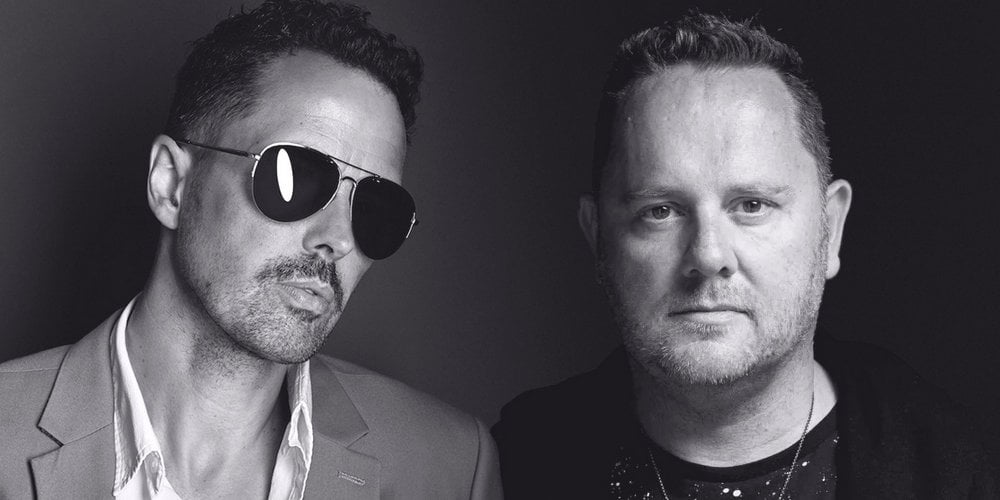Vicious Cycle: 5 Big Moment In Dance Label’s 30-Year History

Despite the wisdom of a small minority, four-on-the-floor tunes, the stuff that gets you moving, isn’t on the way out.
Disco didn’t suck, dance music isn’t dead.
Vicious Recordings is proof of that. After 30 years, and 800 records-plus, the homegrown dance and house specialist is still spinning away.
As the business celebrates its milestone, TMN caught up with co-founders Andy Van Dorsselaer and John Course for a trip down memory lane and to chart the five big moments that had us cutting shapes and throwing our hands in the air.

Spinning into control
Overnight success in the record industry is a fairytale. You’ll sooner find a goblin under your stairs. About three-in-four small businesses survive the first year, according to Forbes. Less than 70% reach the two-year mark, and only half make it to five years. There are no guarantees in the fickle business of music. And there are no stats for businesses that have reached the 30-year mark.
Vicious pressed and shipped its first vinyl in 1992. Course and Andy Van can remember the moment when they’d “made it.”
In 1996, the label put out Dance House & Club Anthems, a compilation stuffed with underground remixes and elusive recordings. Clubbers loved it, and outstanding debts were settled.
“I remember (former MDS chief) Scott Murphy giving us a cheque in the new year,” Course recounts. “And I was like, wow, it’s taken that long?”

Label Heads John Course and Andy Van presenting Sgt Slick’s Gold Disc Award
Madison Avenue paves the way
If you lived in the U.K. at the turn of the millennium, there was no way of hiding from “Don’t Call Me Baby.”
The house hit from Madison Avenue, the pairing of Andy Van and vocalist Cheyne Coates, reached No. 1 on the Official U.K. Singles Chart and dominated the airwaves and dancefloors for months.
The tune blasted to the top with opening-week sales of 93,794, removing the previous leader, Britney Spears’ “Oops! I Did It Again,” the Official Charts Company reports.
International tours followed, and its follow-up, “Who The Hell Are You?,” also cracked the U.K. Top 10.
Madison Avenue wasn’t exactly the “light bulb moment,” notes Course, “more like a dimmer switch that was slowly turning up and turning up as the dance music phenomenon grew in Australia. We were lucky to grow with it.”
Twenty years later, total U.K. combined sales for “Baby” stood at 434,000. The track got steam in 2014 when a remix sent it to No. 1 for a month on the ARIA Club Tracks Chart.
And the winner is…
Madison Avenue’s performance of “Everything You Need/Who The Hell Are You” at the 2000 ARIA Awards is, well, infamous.
History also tells that Madison Avenue had one hell of a night, winning single of the year, beating out Powderfinger, Kasey Chambers and others; along with highest-selling single and breakthrough artist.
Winning single of the year “was a significant moment,” notes Andy Van.
“We were competing against established rock and pop artists. It wasn’t long before ‘Baby’ when John and I were in Frankston, working on an Atari computer with a tiny little monitor making dance music.”
Madison Avenue wasn’t the first ARIA winner from within the Vicious stable – Sgt Slick won for best dance release in 1998 with “White Treble Black Bass” – and it wouldn’t be the last.
The late, great Avicii
Before he lit the fuse on EDM with “Levels,” Tim Bergling, better known as Avicii, signed with Vicious and released his first records with the label.
Andy Van had crossed paths with the Swedish talent in 2008, when Bergling was just 18. The pair hit it off at the Swede’s bedroom studio, demos were exchanged and Vicious found their guy.
In November of that year, Vicious released Avicii’s “Sound Of Now.”
“When we found him, he was a shy, friendly kid with super musical talent,” recounts Course. “And even those early records, which are way more underground, there was an obvious Avicii melody which he became so famous for. It’s not very often that you’re involved with artists that ended up being on the level he was.
“Levels” was released through Universal Music Group in 2011 and changed the game.
“We’re proud to have been part of that,” says Course. “No one would, of course, would have predicted the U.S. EDM explosion.”
Sadly, Bergling took his own life in 2018 after battling with mental health issues. As a tribute to the late artist, all profits from the Don Diablo remix of Avicii and Sebastien Drums’ hit “My Feelings for You” are donated to the Tim Bergling Foundation.

Big crowds, glory days
When Andy Van and Course burn the midnight oil, it’s typically behind the decks. The pair are experienced DJs, a skill that weaves into the Vicious business model.
“We’d often be DJing at the opposition venues, which is so funny, because, you know, we’re best mates,” Andy Van recounts. “But we were competing against each other to get the people to come to our venue. So I was at Chasers, Hysteria, and John was at Chevron.”
A little friendly competition never hurt, though Andy Van has a story to tell that’s hard to beat.
In the U.K. summer of 2000, Andy Van was booked to play the Leeds leg of Love Parade, playing tunes on one of the floats. As fortune would have it, DJ Lee Burridge was stuck in traffic, and Andy Van was elevated to the main stage.
“At 30 hours with no sleep, I walked out on the mainstage, in front of 300,000 people and DJed. It was a dream.”
Smartphones wouldn’t hit the market for several years to come, and, apparently, no footage of the moment exists, “which is infuriating,” notes Andy Van.
“That was an amazing moment that I’ll never, ever have again. It was a pivotal moment for me in my career.”































